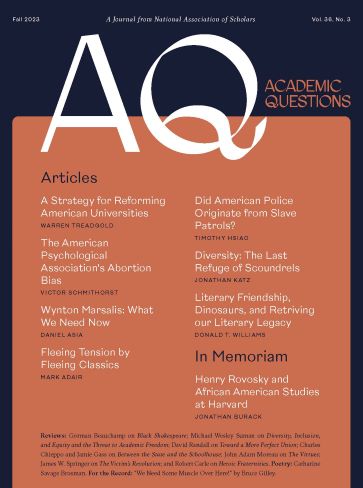Toward a More Perfect Union: The Moral and Cultural Case for Teaching the Great American Story, Timothy Goeglein, 2022, Fidelis Publishing, 2022, pp. xi + 187, $26.00 hardcover.
Timothy Goeglein, Vice President of External and Government Relations for the pro-family Christian organization Focus on the Family, provides a good precis of America’s civics education problem in Toward a More Perfect Union.
Civic education and American history have either not been taught or have been deliberately mistaught throughout our nation’s public—and in numerous cases, even our private—education system. . . . America [consequently] is in the grip of a cultural revolution [whose] . . . “shock troops” are now toppling statues of our nation’s founders, removing monuments to presidents, renaming schools, censoring speech, and redrafting curricula. (Goeglein, 2, 12-13)
The left-wing radicals who have seized control of teaching America’s history and civics in the schools have used that power to disaffect several generations of young Americans from their country—to hate the caricature they have been taught as reality, and to become willing revolutionists. Timothy Goeglein repeats the gist of what we at the National Association of Scholars, and our colleagues at places such as the Heritage Foundation and the Manhattan Institute, have been arguing for some years. He accurately conveys to his audience our facts and arguments about the nature of the radical challenge.
He does so by means of a sermon and a call to action that are too gentle to provide the thrust necessary to turn back the woke assault on America. Goeglein writes for the Focus on the Family membership—evangelicals who oppose the preferred polices of the radical establishment on public policy issues such as abortion and same-sex marriage, but who are not yet familiar with the details of education policy, or with how bitterly the radical establishment hates them and their America. The good folks of River City expect nothing worse than Harold Hill, and Goeglein has to tell them that they face the disciples of Howard Zinn.
As expected of a book written in the form of a sermon, Christian faith underpins Goeglein’s historical understanding: “The Bible is full of men and women who, despite their flaws, served God and showed us God’s truth. . . . This is the nature of history—of the human experience, in fact. No one is perfect. No life (except Christ’s) is flawless.” (62, 65) He likewise emphasizes the religious aspects of the education war, the role of individual character, and the personal effort and renewal each individual can do in his home and neighborhood.
That solution is viral, like so many other things today, meaning it starts with talking with our children, then with our friends and neighbors, and then with teachers—and always in a civil manner based on mutual respect. . . . This message will hopefully restore America, one person at a time. (16)
He does not use the phrase, but Goeglein suggests that civic education inculcates republican virtue, and that personal and republican virtues rise and fall together.
Goeglein emphasizes personal transformation partly because that is what sermons aim at, but partly because he does not believe that the public realm can be recaptured from the radical establishment in the foreseeable future.
Because the public schools in so many municipalities have been captured by those who seek to teach a Leftist view of American history and government, it will take years, and perhaps decades, of perseverance to reverse the damage done and restore the teaching of history and civics as they should be taught. That is why equipping our children at home in this knowledge is so important, as they are likely to be the ones who will someday bring about this restoration. (142)
Goeglein advises his audience to sacrifice but not to act to reclaim their schools and their government:
It is also why those parents who have little or no choice, whether it be for financial or health reasons, but to place their children in public schools must be extra vigilant and expect to receive the full wrath of Leftist activists if they stand up and demand that civics be taught while also standing against the indoctrination their children are receiving. . . . Taking a stand will not be easy. . . . It may mean personal sacrifice such as placing our children in a classical school, a strong faith-based college, or homeschooling. (154)
None of this is wrong—but it is not sufficient. Evangelical Christians, all Americans who love their country, face a vicious persecution by radicals who have commandeered the heights of government and civil society and who will not hesitate to use every institution they control to deracinate their children. The winsome tones of Fred Rogers will not suffice, and family trips to Valley Forge will not counteract the concerted propaganda of the public schools. Faith must be sterner and more willing to wield the weapons of the state.
Martyrdom is well and fine, but the faithful have other models—Ignatius Loyola, Oliver Cromwell, Judas Maccabeus. Talk about suffering here below/And let's keep a-followin' Jesus—yes, but alternate the verses with Onward, Christian soldiers! Marching as to war.
David Randall is director of research at the National Association of Scholars, [email protected]. His most recent books are The Concept of Conversation: From Cicero’s Sermo to the Grand Siècle’s Conversation (2018) and The Conversational Enlightenment: The Reconception of Rhetoric in Eighteenth-Century Thought (2019). Randall last appeared in AQ with “Conservatism: Which Way Forward?,” a review of Yoram Hazony’s Conservatism: A Discovery (Regnery 2022).
Photo by Robin Jonathan Deutsch on Unsplash














